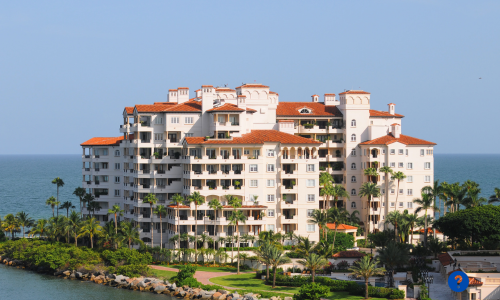A timeshare allows individuals to purchase the right to use a vacation property for a specific period each year. While timeshares offer a way to secure annual vacations, the costs can be complex and vary widely depending on the location, property type, and ownership structure. Let’s break down the costs involved in buying and maintaining a timeshare.
What Is a Timeshare?
A timeshare is a shared ownership model where multiple people hold rights to use a property, typically for one week per year. Common types include:
- Fixed Week: Owners use the property during the same week every year.
- Floating Week: Owners can choose a week within a specific season.
- Points-Based System: Points are used to book stays at various properties within a network.
Upfront Costs of a Timeshare
Cost Type |
Typical Range |
Details |
|---|---|---|
Initial Purchase Price |
$10,000 – $40,000 |
Varies by property, location, and ownership model. |
Closing Costs |
$300 – $1,000 |
Includes legal fees and title transfer costs. |
Marketing Incentives |
Often reduced or waived |
Some developers offer discounts for buyers who attend a sales presentation. |
Annual Maintenance Costs
Fee Type |
Average Cost (Annually) |
Notes |
|---|---|---|
Maintenance Fees |
$500 – $2,000 |
Covers property upkeep, utilities, and staff. |
Special Assessments |
$1,000+ (if applicable) |
Unplanned costs for major repairs or upgrades. |
Exchange Fees |
$150 – $300 per exchange |
For points-based systems or swapping weeks. |
Resale Timeshares: A Cheaper Option
Purchasing a timeshare on the resale market can significantly reduce the upfront cost but comes with trade-offs.
Feature |
New Timeshare |
Resale Timeshare |
|---|---|---|
Cost |
$10,000 – $40,000 |
$1,000 – $10,000 |
Developer Perks |
Included |
Not included (e.g., access to exclusive resorts). |
Transfer Fees |
Often included |
Paid by buyer during transfer. |
Hidden and Additional Costs
- Travel Costs:
- Flights, car rentals, and other travel expenses to reach the property.
- Exchange Program Memberships:
- Programs like RCI or Interval International charge annual fees ($100 – $300) for accessing other properties.
- Taxes:
- Property taxes may be included in maintenance fees or charged separately.
Cost Comparison: Timeshare vs. Traditional Vacationing
Cost Component |
Timeshare (Annually) |
Traditional Vacation |
|---|---|---|
Lodging |
$1,500 – $3,000 |
$2,000 – $5,000 (7 nights at a hotel). |
Flexibility |
Limited to availability |
Full flexibility in location and dates. |
Upfront Investment |
$10,000 – $40,000 |
None |
Is a Timeshare Worth It?
Pros:
- Guarantees a vacation spot annually.
- Often located in prime destinations.
- Access to resort-style amenities.
Cons:
- High upfront and ongoing costs.
- Limited flexibility unless part of a points system.
- Difficult to resell, often at a loss.
Sample Scenarios
Scenario |
Estimated Cost |
Details |
|---|---|---|
New Timeshare Purchase |
$15,000 + $1,200/year |
1-week fixed-week ownership at a mid-tier resort. |
Resale Timeshare |
$5,000 + $800/year |
1-week ownership purchased through resale. |
Points-Based System |
$20,000 + $1,500/year |
Flexible booking within a global network. |
Alternatives to Timeshares
Option |
Cost |
Advantages |
|---|---|---|
Vacation Rentals (Airbnb) |
$1,000 – $3,000/week |
No long-term commitment; pay per stay. |
Vacation Clubs |
$1,000 – $5,000/year |
Pay for access to a network of properties. |
Fractional Ownership |
$50,000 – $200,000 |
Includes deeded property ownership. |
The cost of a timeshare ranges from $10,000 to $40,000 upfront, with annual maintenance fees averaging $500 to $2,000. While timeshares can be a good fit for families or individuals who vacation consistently in the same location, the high costs and limited flexibility make them a significant commitment. Alternatives like vacation rentals or clubs may offer more freedom and less financial burden.
Have you considered buying a timeshare or already own one? Share your experiences and tips in the comments below!
